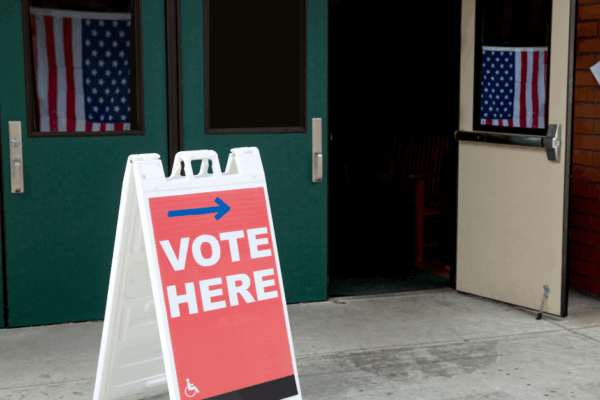By: Destiny G.
Students don’t give much thought to school board elections, but it actually has a massive impact on our everyday lives. From the classes available to us, to the textbooks we use, to funding sports, clubs, and the arts, and even bathroom and dress code policies — our school board members are the ones calling the shots. When decisions about student lives are made without student input, they can seem out of touch or just plain unfair. However, when students pay attention, speak up, and show up, we can create schools that work for all of us.
Here are three ways school boards impact student’s everyday life:
- Curriculum: School boards have the power to shape what we learn — or don’t learn. School boards are responsible for setting curricula within state guidelines, giving them the authority to decide what information students have access to. This power allows school boards to ban books, remove lessons about race, LGBTQ+ history, and gender, and censor topics they label as ‘controversial.’ Censorship efforts don’t just limit how we learn; they limit the way we think. Preventing students’ from reading and learning about our country’s history or the lived-experiences of historically marginalized groups weakens our ability to think critically about societal structures, understand the impact of our actions, develop empathy, and become a part of building a more inclusive world.
- Equitable Funding: Equitable funding is imperative in ensuring that all students, regardless of race, socioeconomic status, or background, have access to equal educational opportunities that allow them to thrive. School boards play a crucial role in managing budgets, allocating resources, and overseeing the day-to-day operations of the schools within the district. The funding decisions school boards make influence the quality of education students’ receive, what type of programs and extracurricular activities are offered, and other forms of support available. School board’s can be the bridge or barrier between strong, equitable, quality education for all students.
- School policies: School boards are responsible for creating and implementing policies that shape our daily experience at school. From discipline practices to safety measures, to the resources we get both in and out of the classroom, these policies have a direct impact on how safe and supported students feel. Essentially, school board policies are the laws of our school communities — they can either hold students back, or set us up for success. That’s why it's so important to elect school board members who listen to student voices and are committed to ensuring that school policies are thoughtful, fair, and truly in the best interest of students.
How to get involved:
- Vote: If you are a U.S. citizen, a resident of a school district holding an election, and 18 years old by Election Day, Tuesday, May 13, you are eligible to vote in Delaware’s school board elections. By casting an informed ballot, you can make a direct impact on our schools and communities.
- Spread the word: If you are not eligible to vote, chances are you have many people in your life who are! Make your voice heard by educating friends, family, and peers about the importance of school board elections and helping them make their plan to vote.
- Help others get to the polls: You can help others in your community overcome barriers to the ballot box by offering transportation or childcare. Reach out to people you know to ask about what type of support could help them make it to the polls on Election Day.
- Continue to show up: Whether you are eligible to vote or not, you can stay involved in school board advocacy beyond Election Day by attending your local school board meetings. School board meetings are open to the public and a great place for students to gain more insight on the decisions that affect our daily life, ask questions, demand accountability, and make our voices heard.

